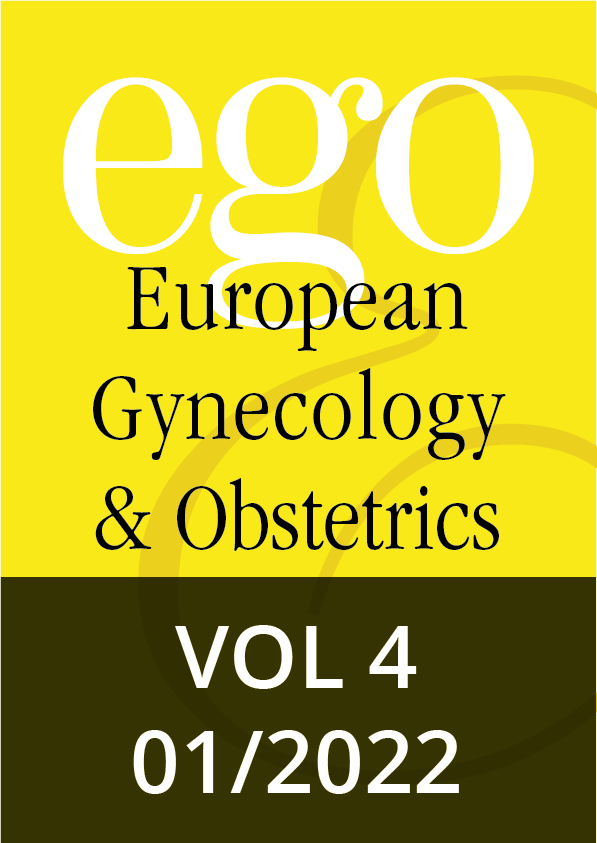Systematic review, 002–011 | DOI: 10.53260/EGO.224011
Reviews, 012-017 | DOI: 10.53260/EGO.224012
Short reviews, 018–022 | DOI: 10.53260/EGO.224013
Case reports, 023–028 | DOI: 10.53260/EGO.224014
Original articles, 029–040 | DOI: 10.53260/EGO.224015
Case reports, 041-048 | DOI: 10.53260/EGO.224016
Case reports, 049–055 | DOI: 10.53260/EGO.224017
Case reports, 056-059 | DOI: 10.53260/EGO.224018
Original articles, 060–064 | DOI: 10.53260/EGO.224019
Undertreatment in older patients with breast cancer
Abstract
Background and purpose: As older patients with breast cancer are often not included in clinical trials, we currently have a limited number of specific recommendations available for their management.
Methods: Our retrospective analysis concerned patients older than 75 years treated between January 2010 and December 2018 at the Breast Unit of Martini Hospital in Turin. We evaluated the effect of undertreatment on overall survival (OS), local recurrence-free survival (LRFS), systemic recurrence-free survival (SRFS), and disease-free survival (DFS) in elderly people. Undertreatment was defined as any deviation of the treatment from the Italian and international guidelines, based on stage and biological sub-type.
Results: We selected 408 patients aged >75 years and affected by primary breast cancer. In this whole sample, worse OS (p < 0.001), LRFS (p = 0.008) and SRFS (p = 0.042) were observed in the undertreated group as compared with the standard treatment group, while no difference was found in DFS. In the older subgroup of patients (>85 years old), OS and LRFS did not appear to be affected by undertreatment (p=0.476 and p=0.834, respectively). While SRFS was seen to be worse in the undertreated patients aged >85 years (p=0.031), it did not appear to be affected by undertreatment in the subgroup aged 75-85 years (p=0.119).
Conclusion: Although undertreatment affects survival in a statistically significant way, age itself is the main factor affecting five-year survival and is the main risk factor for mortality in elderly patients. In fact, the over-85 group showed no statistically significant difference in OS according to omission or otherwise of axillary surgery or radiotherapy. So, in this group of patients, de-escalation therapies could be a reasonable choice.
Keywords: Breast cancer, de-escalation treatment, elderly, geriatric oncology., undertreatment
Citation: Surace A.,Idda L.,Trino E.,Turletti A.,Capello C.,Mairone L.,et al. Undertreatment in older patients with breast cancer, EGO European Gynecology and Obstetrics (2022); 2022/01:041-048 doi: 10.53260/EGO.224016
Published: June 1, 2022
ISSUE 2022/01

Systematic review, 002–011 | DOI: 10.53260/EGO.224011
Reviews, 012-017 | DOI: 10.53260/EGO.224012
Short reviews, 018–022 | DOI: 10.53260/EGO.224013
Case reports, 023–028 | DOI: 10.53260/EGO.224014
Original articles, 029–040 | DOI: 10.53260/EGO.224015
Case reports, 041-048 | DOI: 10.53260/EGO.224016
Case reports, 049–055 | DOI: 10.53260/EGO.224017
Case reports, 056-059 | DOI: 10.53260/EGO.224018
Original articles, 060–064 | DOI: 10.53260/EGO.224019
